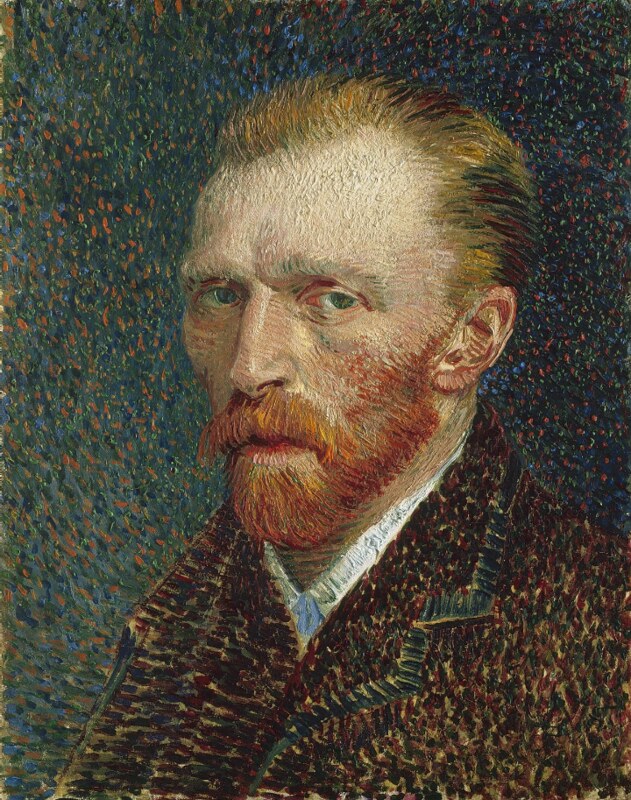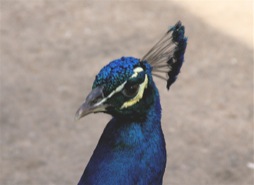
The first thing you will notice on my MacBook is the Starry Night sticker, which I have intentionally placed there to remind me of these quotes.
I grew up around paintbrushes and canvases since my mother secured a livelihood by selling her artwork. However, despite having always been an artist at heart, I haven’t really appreciated art—until I discovered Van Gogh.
I was in my 20s when I “met” him at a bookstore on the Champs-Élysées. I came back home with the book to find out that my sister—who is also an artist—was studying the work of Van Gogh at college and was obsessed with him. We watched the movie “Lust for Life” together, and she introduced me to his style, life, and artwork.
Other than relating to some areas in his life, like his struggle, addiction, intensity, bond with his sibling, and pain, I could also relate to Van Gogh’s work, but it took me a while to decode the how and why.
So here are the seven quotes that helped me turn my life around when I could, and accept it when I couldn’t:
“I dream my painting and I paint my dream.”
No life should be lived haphazardly. When we are mindful, know what we want, dream it, and act on it, dreams turn to goals, then turn to reality. We can paint it one brushstroke at a time. A bucket of water can be filled drop after drop. This is how I achieve my goals today, one day at a time.
“Normality is a paved road: it’s comfortable to walk, but no flowers grow on it.”
Van Gogh had a tough life, no doubt, but so do we—all different yet all the same. If there is one thing I’ve learned, it would be this: nothing easy is worth having. Comfort is nice, but nothing grows in a comfort zone. If I had stayed in my comfort zone, writing in my diary for myself, not daring to have a voice and share my stories, you wouldn’t be reading this, and I wouldn’t have been of any benefit.
“If I am worth anything later, I am worth something now. For wheat is wheat, even if people think it is a grass in the beginning.”
Unfortunately, Van Gogh’s genius was not acknowledged during his lifetime—only after his death. It doesn’t make it any less, though. Consequently, I keep reminding myself to do good with whatever I have and give my best even when I am not validated. Trust me, I know how hard it can be. Self-motivation is the hardest thing we, humans, have time after time.
“So often, a visit to a bookshop has cheered me and reminded me that there are good things in the world.”
If you ask anyone who knows me, even a distant acquaintance, to tell you what’s the one thing that reminds them of me, most would answer “books.” Van Gogh had a way with words too. His collection of heartfelt letters, mostly to his brother Theo, could be easily considered a masterpiece of its own. And let me tell you from experience, only avid readers can write like this.
“Your profession is not what brings home your weekly paycheck, your profession is what you’re put here on earth to do, with such passion and such intensity that it becomes spiritual in calling.”
Like Van Gogh, most of us did not grow financially rich—some of us have been even struggling for most of our lives, stuck in jobs that suck the life out of us. However, when we find our true passion (whatever that is), start living our truth, put our heart, mind, and soul into it, only then would we find our calling—our purpose. It is not an easy venture either—believe it or not, Van Gogh tried finding it in priesthood at first. I wanted to become a nun at one point in my life (don’t ask).
“Whoever loves much, performs much, and can accomplish much, and what is done in love is done well.”
Check my bio on Elephant Journal—you’ll know what I am talking about. When I talk about love and passion, people instantly assume romance—which is beautiful, but it’s only a part of that universal force. Try cooking with love and you will see what Van Gogh was talking about. Anything we do with love can never fail, even when the end result or the benefits are not tangible and instant.
“What am I in the eyes of most people—a nonentity, an eccentric, or an unpleasant person—somebody who has no position in society and will never have; in short, the lowest of the low. All right, then—even if that were absolutely true, then I should one day like to show by my work what such an eccentric, such a nobody, has in his heart. That is my ambition, based less on resentment than on love in spite of everything, based more on a feeling of serenity than on passion. Though I am often in the depths of misery, there is still calmness, pure harmony, and music inside me. I see paintings or drawings in the poorest cottages, in the dirtiest corners. And my mind is driven toward these things with an irresistible momentum.”
Self-worth…who doesn’t struggle with that? In the movie, “Loving Vincent,” one of the characters referred to Van Gogh as the “crazy red,” while another as “mad,” and a third as “interesting man.” Perceptions might be true, at times, but are mostly just that. Today, years after his death, his talent is recognized and his artwork is worth millions and billions, although it was his heart that was priceless all along—the unappreciated and underrated human heart.
I spent hours watching videos on pointillism, thinking how our lives are built on this concept. The small things we do and those that happen day in and day out look blurry and like silly, little dots that do not make sense until we see the big picture and finally understand how connected these mishaps, joyful moments, and even plain routines, are.
They all blend and turn out to be necessary if we want to have a breathtaking masterpiece we can call “full life.”
~






Read 5 comments and reply